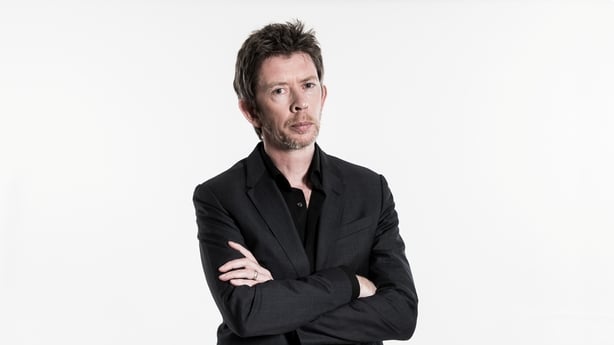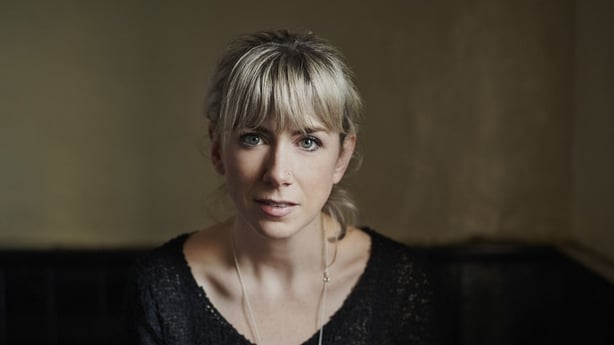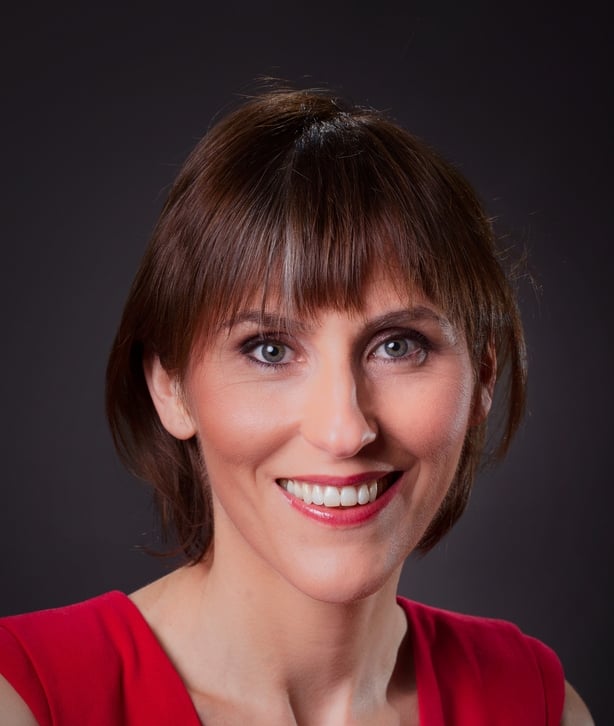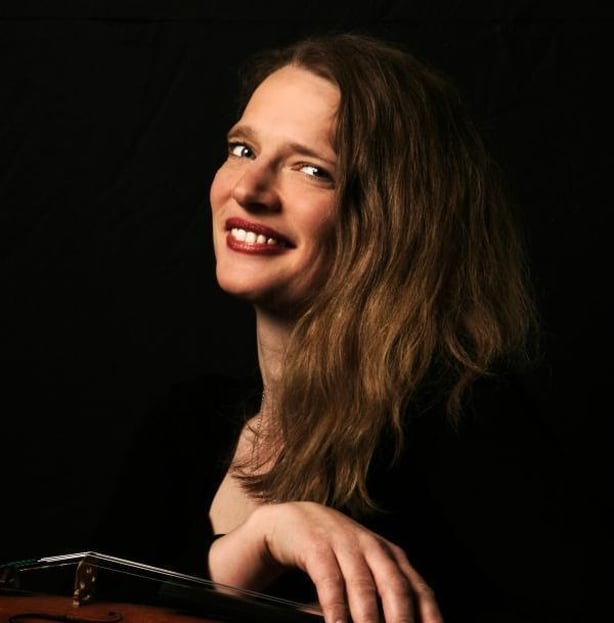We are at a turning point in our country, poised shakily on the verge of an unknowable future – the pandemic may be receding, but climate change, inflation, war in Europe and beyond, remain ever-present in our lives. At the same time, we can't help but have hope and excitement for the future. As human beings we still have the urge to make the world a better place, and as a people we place great value on the expression of our culture. Now more than ever, the arts and our shared cultures have huge worth and value to our lives and to our society.
Over the past two years, as the whole world endured a disastrous pandemic, the work of our artists' and their ideas have taken us in all sorts of unexpected directions, and changed our points of view. New work – sounds, words, visual art –has prompted changes in our thoughts, our feelings, and in our ways of doing things.

In the early days of the pandemic, when we were all in that first lockdown, I watched as musician Colm Mac Con Iomaire - his Vicar Street concert cancelled because of Covid-19 - picked up his violin and started performing from his living room in Co. Wexford. That live concert, broadcast via his mobile phone, reached into the homes and minds of many thousands of people. It reminded us in that bleak hour that we are human. It reminded us that we could respond to darkness with beauty and grace, as Colm offered solace, distraction, comfort and community.
Inspired by this and similar innovations, RTÉ too adapted, and over the next two years our small teams would innovate and find new ways of doing things. RTÉ sought to support artists robbed of their livelihoods and their access to live audiences. To do this, we launched several major events that would bring communities and individuals together through culture, and in so doing created a magnificent archive of artistic interpretation during the pandemic. A series of events in 2020 - Shine Your Light, Shine, Illuminations and Solstice - saw RTÉ commissioning important new arts content across radio, television and online; www.rte.ie/culture became the go-to page for new art commissions and events in the country.

RTÉ's orchestras also joined the mass migration from live to online. While many orchestras around the world were furloughed, the RTÉ Concert Orchestra developed new ways of working built around crucial innovations in remote recording. In so doing, they brought the audience beyond the traditions of in-person performance, uniting music afficionados across television, radio and online. The pandemic gave us unforeseen opportunities, as the potential to play 'together/apart’ became clear. Teams were emboldened by a new ambition and potential, and what results! The RTÉ One television special, Starman, led by David Bowie's musical director and guitarist, saw Gerry Leonard perform the songs of David Bowie with the orchestra and guest artists, including Rufus Wainwright, Joe Elliott, Suzanne Vega, a glitter covered Gavin Friday, Sharon Corr, and Imelda May, alongside newer artists of great talent like Soak and Faye O’Rourke. It was a spectacular and ambitious tribute to a legend. And we saw this spectacular success repeated with the songs of Leonard Cohen, and in A Woman’s Heart, the tribute to the iconic album featuring Maura O' Connell, Wallis Bird, and Eleanor McEvoy.
A virtuous circle of broadcast and live event has emerged from our experience of the pandemic years. We believe a national orchestra is for everybody to experience and enjoy, whether from home or, increasingly, at festivals and venues across the country.

The orchestra encapsulates the radical ambition for arts and culture on RTÉ, which we see as for everyone and of everyone. For our artists, composers and musicians, RTÉ’s mission is to commission, collaborate, and create new work, and bring that work to as wide an audience as we can. This RTÉ does, and has done, across a range of services. On RTÉ Radio 1, Céilí House, The Rolling Wave, Sunday Miscellany, our daily arts show and the RTÉ Short Story Competition have been bringing wonder in all their forms for over 30 years. They are mainstays, and we continue to invest time, focus, and resources into the music, words, and stories found in our heritage programming. But, as culture lovers ourselves, we are driven to innovate: a new initiative, Faoiseamh, will feature 10 new traditional music pieces commissioned together with the Irish Traditional Music Archive. New industry leading initiatives, like the RTÉ Radio 1 Folk Awards, will continue to celebrate the successes of the Irish folk music sector each year.New strategic partnerships with organisations such as the Arts Council will allow for additional programming on RTE One television, bringing national events like Culture Night Live to a very large audience.
New arts formats and documentaries on television will start in the second half of this year. We will dive into the world of book clubs around the country, and explore the culture of the west of Ireland. And we will focus on the environment as explored by artists through powerful documentaries on the Irish boglands and our fragile landscapes, featuring the RTÉ Concert Orchestra.
In the arts, we unite. RTÉ lyric fm – and those who love it – know the power of music as a dynamic and unifying cultural force. RTÉ lyric fm was a safety net, a refuge, a sustenance, to hundreds of thousands during the pandemic. As we emerge into a more open world, RTÉ lyric fm continues to be a soundtrack to so many lives, and to those who have found they need a new way of living in our chaotic world.
In his book Messy, behavorial economist Tim Harford writes: "There are advantages in the untidy, the unquantified, crude, cluttered, uncoordinated, improvised, imperfect, incoherent, random, ambiguous, vague, difficult, diverse". Great art is born in the messiness of life; alternative ways of seeing are often born from untidy beginnings; our mission in RTÉ is to give this kind of freedom to the makers – to make space to make - and extend that freedom to our wide and diverse audiences, so we may all delve deep, and explore ourselves and our world through the artists who interpret it.

While Irish culture and arts is feted internationally, it is often something we ourselves take for granted – we live in books, in music; conversation, dance and song are part of our daily lives. In this way, sport and the arts often operate on the same emotional plane – they offer similar excitement, escape, discovery, moments of transcendence and strong bonds of community.
We recognise this in RTÉ, and as a result RTÉ is truly unique in how we bring these planes – these communities – together. Our cultures, whether sporting or artistic, whether traditional or innovative, are inter-connected. We see this interconnection in the person who sits down to Ceili House at the end of a long All-Ireland day; we see it in the Bowie fan enjoying the RTÉ Concert Orchestra for the first time; we see it in the weary commuter that enters a new world through the soundscapes of a radio documentary, or through the music-box wonders of RTÉ lyric fm. We see it in the current-affairs television viewer who hangs on ten minutes longer than they’d planned, to immerse themselves in the powerful storytelling of an arts documentary.
For me, that interconnection, that democratisation of the arts, that space for all our cultures, is the power of RTÉ and the arts: the arts live alongside our sport, our news, our dramas and diversions. They are a huge part of what RTÉ does, because they are a defining part of who we are, as a people, and as a nation.


